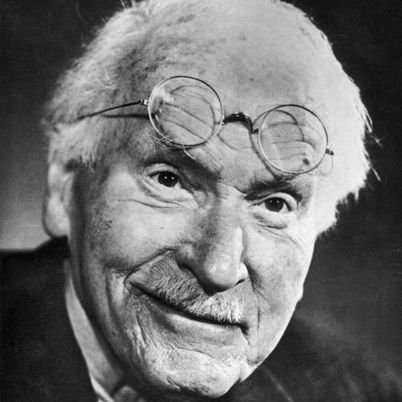SYNCHRONICITY GROWS BRANDS & PEOPLE
Connecting Carl Jung and Joseph Jaworski

I came across Joseph Jaworski’s book “Synchronicity: The Inner Path of Leadership,” where he explores the concept of synchronicity as it relates to leadership and personal development. As I belief in humanizing brands (for multiple reasons), I was interested to see if branding and brands can use synchronicity for ‘personal’ development (Jung is about personalities). And as it turns out: yes.
Jaworski describes synchronicity as meaningful coincidences or events that seem to be connected in a significant way.
These events are seen as more than mere chance or randomness; they carry a deeper, often spiritual, significance. When recognized and embraced, he beliefs it can lead to a more profound understanding of oneself, the interconnectedness of events, and the potential for transformative leadership.
Interestingly, Jaworski based his ideas on Swiss psychiatrist Carl Jung, who we all know as the inspirer of the 12 brand archetypes (personality types), but Jung was also the one that came up with the term “synchronicity.”
According to Jung, synchronicity is the occurrence of events that are not causally related but are meaningfully connected in a way that suggests a deeper, underlying order to the universe.
So, they both explore how individuals perceive and interpret the world around them, although from different angles. Synchronicity adds a layer of depth to Jung’s exploration of the human psyche by suggesting that external events can have profound psychological significance.
Combining both views and mix it with some creativity, let’s philosophize about the potential impact of these ideas on brands and branding:

1. Authenticity: Understanding the concept of synchronicity can lead brands to focus on authenticity and alignment with their core values and purpose. This can help create a brand identity that resonates more deeply with employees, society and customers.
2. Innovation and Creativity: Synchronicity encourages leaders to tap into their intuition and collective wisdom. Brands that embrace this concept may foster a culture of innovation and creativity, leading to the development of unique and market-leading products and services.
3. Stakeholder Engagement: Brands that emphasize self-awareness and meaningful connections can build stronger relationships with their customers. By recognizing the interconnectedness of all things, they may approach stakeholders (employee, society, suppliers and customers) engagement with a more empathetic and holistic perspective.
4. Decision-Making: Synchronicity suggests that decisions should be made with a deeper understanding of context and a focus on collective intelligence. Brands that adopt this approach may make more ethical and socially responsible decisions, enhancing their reputation.
In a world overflowing with options, your brand can rise above the cacophony. Jung’s personality theory and Jaworski’s synchronicity insights offer a symphonic approach to branding—a resonant, meaningful connection that lingers in the hearts and minds of your audience.
So, as you chart your branding voyage, remember the wisdom of these intellectual thinkers. Seek synchronicity, embrace personality diversity, and let your brand and all involved grow in all dimensions.
If you’re interested, let’s discuss ways to synchronize your brand and company.
